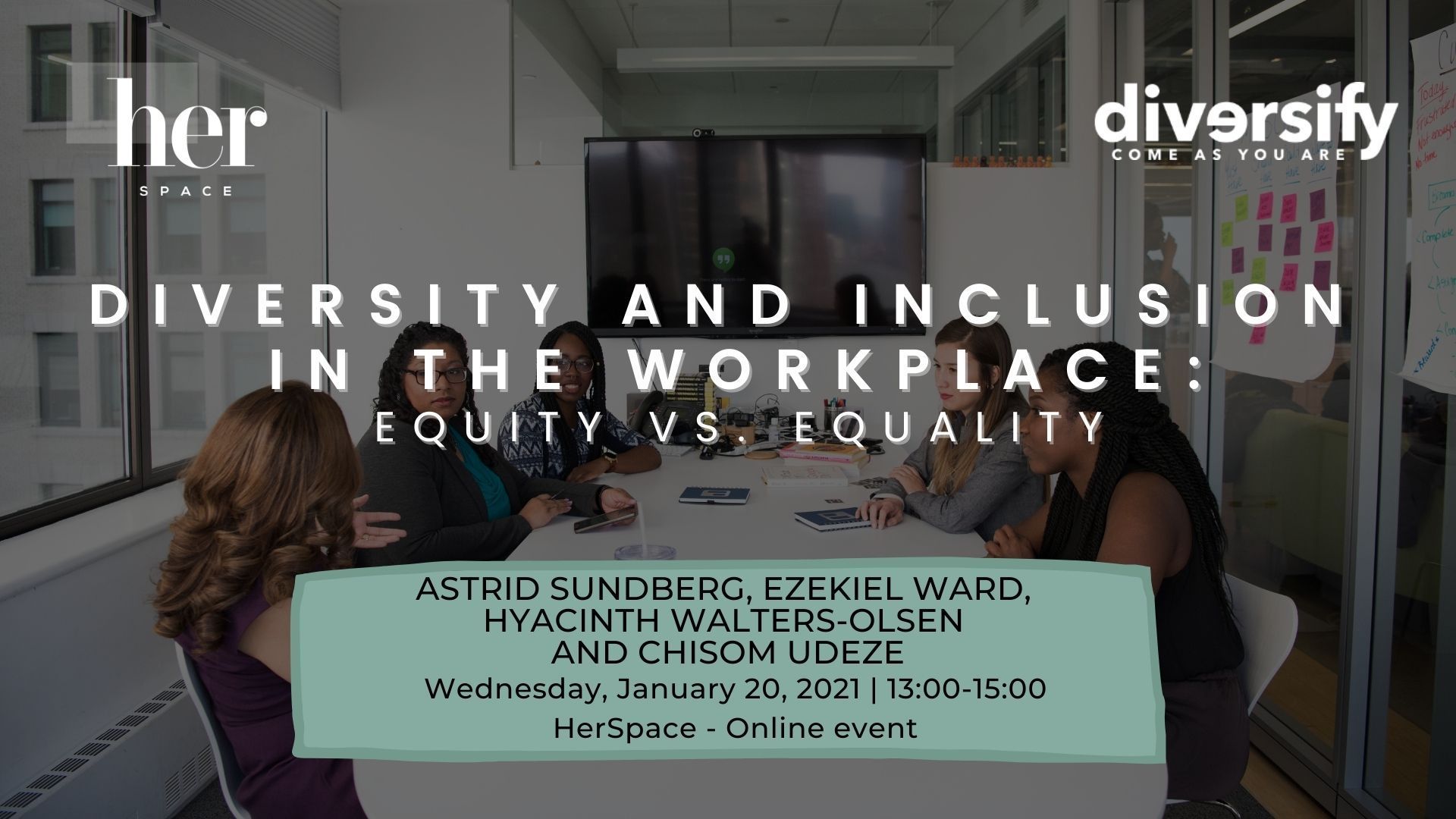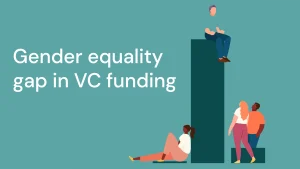On Wednesday 20th of January, Diversify held its second Diversity and Inclusion in the Workplace session, this time focusing on Equality vs. Equity.
This series is designed to put action behind the popularization of Diversity and Inclusion initiatives, which have exploded in the wake of the Black Lives Matter protests of 2020. These initiatives are very much welcomed, and overdue, but they must be accompanied by education, awareness, meaning and action. In looking at equality and equity, we aim to provide an understanding of how these terms are different and have distinct outcomes when applied. We do this because the words equality and equity are often used interchangeably, much like diversity and inclusion are, and this does not lead to a nuanced application and meaningful outcomes.
The speakers for this event represented a range of workplace perspectives. We were joined by Astrid Sundberg who is Head of Human Resources at Shortcut, Ezekiel Ward who has extensive experience within company compliance and is the founder of North Star Compliance, and Chisom Udeze, who comes from an employer perspective as the founder of HerSpace, Diversify and Mettle Consult. The session was once again moderated by Hyacinth Walters-Olsen who brought her own experience as a professional leader with 20 plus years of experience.
The discussion began by differentiating these terms, and Chisom delivered a wonderful visual of how diversity, inclusion, equality and equity relate: along a spectrum of holistic and intentional implementation. As we know from the previous session, diversity can be seen as the science, the metrics, and inclusion is the art, where one has to be creative and active in its construction. Equality is then the provision of the same resources for all, and equity goes one step further to acknowledge where customized support is required in the wake of minority discrimination, disability, socioeconomic background or learning opportunities, for example. Astrid elaborated on the importance of incorporating such mechanisms into the workplace, and it is pretty simple. When people are seen, heard and have the support they need to work at their best, are more productive. This in turn drives up revenue and enables growth. The message is to employers: creating a diverse and inclusive workplace is in your own interest.
With this visual in mind, Ezekiel then explored how important the ethical culture of a company is to their organizational culture. In order words, the importance of complying to codes of conduct, ensuring that everyone is on the same page in terms of expectations, and that accountability can be upheld. He provided us with 5 accumulative points to achieve a secure ethical culture within the workplace:
1. Leaders (and line managers) must walk the talk.
2. Clarity in the form of written codes of conduct must be provided, and education of these must precede indictment.
3. Trust and openness is imperative to problem solve as a team. This also promotes inclusivity and innovation.
4. Accountability must be upheld.
5. Speak-up. There must be a culture of being able to raise questions.
The conversation continued with each of the speakers reflecting on their personal experience to provide insight into areas such as indifference and negligence, the role of unconscious bias, job adverts and inclusive language, diversifying recruitment pipelines and pool, and tips on how to identify red flags of a company which is not acting on their diversity and inclusion initiatives.
The distinction between shared values and company values was also discussed, which progressed the topic of inclusivity. Chisom approaches shared values as she would any relationship, professional or otherwise, whereas company values relate to a company’s mandate and vision. These areas sometimes overlap, particularly within the entrepreneurial context, and the water can become murky. This is why progressing diversity, equity and inclusion (DEI) is hard work. It requires listening, empathy, sometimes compromise, and for us to be human.
Astrid’s hunger for knowledge, displayed through her extensive list of resource recommendations (you can find a list below!) led us to some of her main take-aways in creating an equitable workplace: expand your influences and educate yourself. Ezekiel calls for company leaders to take a position on DEI and to take action. Chisom concluded by saying that we must all be willing to unlearn, learn and relearn; evaluate data to set measurable DEI targets; and most importantly, hire for cultural contribution, not fit. We should not aim for our clones in the workplace, we want diversity of knowledge, background and experience.
Watch the full panel discussion below.
The next event on this series is Diversity and Inclusion in the Workplace: Deconstructing Unconscious Bias. We’d love for you to join us. This event is free to attend. Register to save your place.
Resources Mentioned During the Panel
- A recent article from DN (Norway) referencing Bain & Company’s new recruitment method where name, gender or age of job seekers are hidden. The results as they say are astonishing!
- Hive learning: https://www.hivelearning.com/site/diversity-and-inclusion/
Authors, Books & publications
- Michelle King: The Fix: Overcome the Invisible Barriers That Are Holding Women Back at Work
- Candish Morgan: “Part of the Team”: Designing Inclusive Management at Pinterest”
- Oona King: Snap Inc. Diversity Annual Report 2020
- Nicholas Kristof and Sheryl WuDunn: Half The Sky: Turning Oppression Into Opportunity For Women Worldwide
- Dr Tererai Trent: The Awakened Woman
- June Sarpong: Diversify
This reflection was written by Nikki Hayes, on behalf of Diversify Team.




